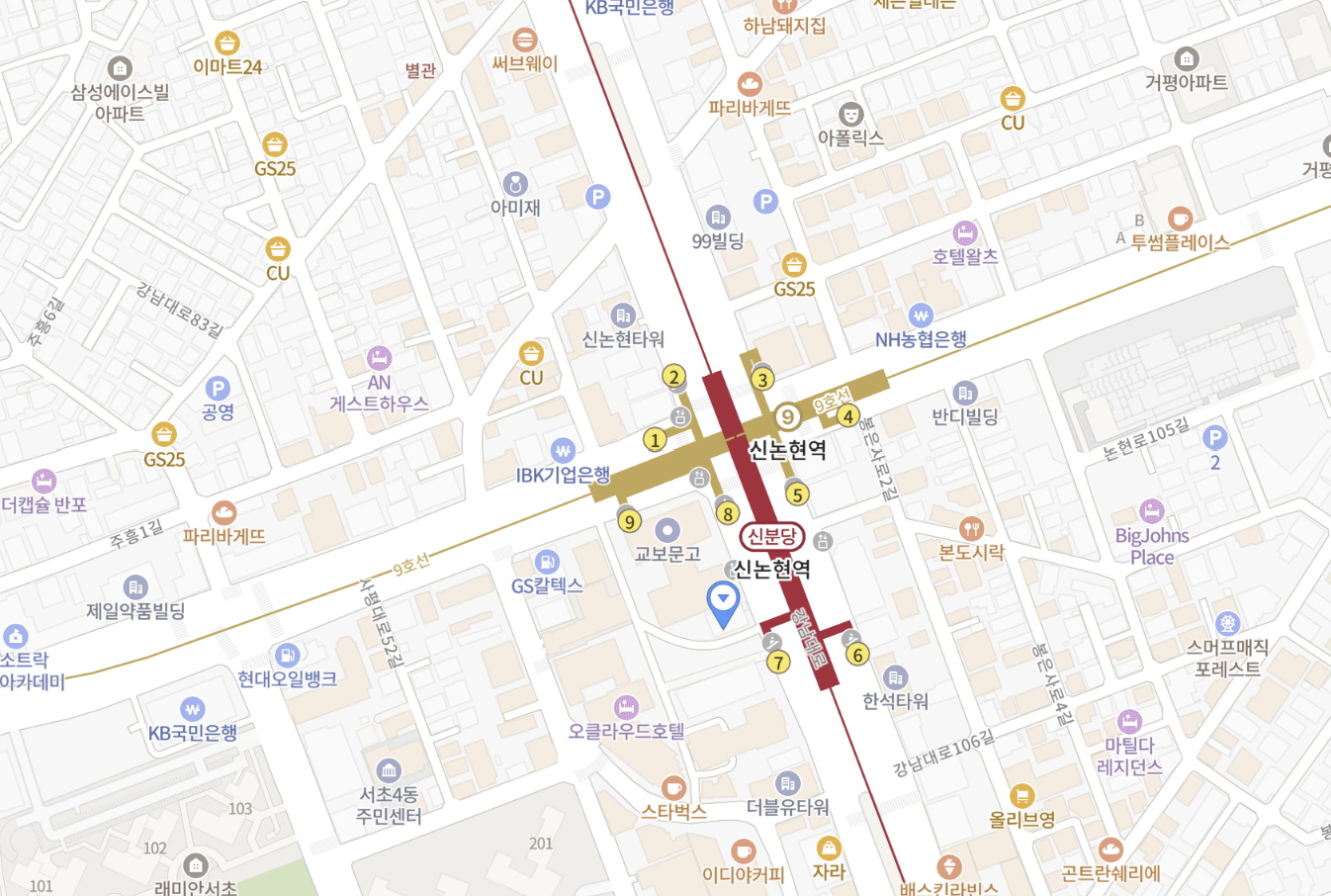PCOS Management in Korea
Gangnam, Seoul
Navigating PCOS in Korea: A Comprehensive Guide to Management
Polycystic Ovary Syndrome (PCOS) is a common and complex hormonal disorder affecting millions of women worldwide, including those in South Korea. Characterized by a range of symptoms from irregular periods and acne to excess hair growth and fertility challenges, PCOS requires a holistic and long-term management approach. If you're an expat in Korea managing PCOS, understanding the local healthcare landscape can empower you to take control of your health.
Diagnosing PCOS in Korea
Korean medical professionals typically diagnose PCOS based on established international criteria, primarily the Rotterdam criteria. This involves identifying at least two out of the following three features:
- Oligo- or Anovulation: Irregular, infrequent, or absent menstrual periods, indicating a lack of ovulation.
- Clinical and/or Biochemical Hyperandrogenism: Signs of elevated male hormones, such as hirsutism (excess body hair), severe acne, male-pattern hair loss, or elevated androgen levels in blood tests (e.g., testosterone).
- Polycystic Ovaries (on ultrasound): The presence of 12 or more follicles (small cysts) in one or both ovaries, or increased ovarian volume, as seen on a transvaginal ultrasound.
Diagnosis often involves a detailed medical history, physical examination (including assessment of hirsutism using scales like Ferriman-Gallwey), blood tests (to check hormone levels like androgens, LH, FSH, prolactin, thyroid hormones, and to rule out other conditions), and a pelvic ultrasound. Insulin resistance screening (e.g., fasting glucose, insulin levels) is also common due to its strong association with PCOS.
Comprehensive Management Approaches
PCOS management in Korea, as elsewhere, is highly individualized and focuses on addressing specific symptoms, preventing long-term complications, and improving quality of life. Treatment plans often combine medical interventions with significant lifestyle modifications.
- Hormonal Regulation (for irregular periods & androgen excess):
- Oral Contraceptive Pills (OCPs): Often the first-line treatment. Combined OCPs help regulate menstrual cycles, reduce androgen levels, and improve symptoms like acne and hirsutism. Brands like Mercilon, Diane-35, and Yaz are commonly prescribed.
- Progestin Therapy: For women who cannot take estrogen or only need to induce a period periodically, progestin tablets can be prescribed.
- Anti-Androgens: Medications like spironolactone may be prescribed specifically to reduce severe hirsutism and acne by blocking androgen receptors.
- Metabolic Management (for insulin resistance & weight):
- Metformin: Commonly prescribed to improve insulin sensitivity, reduce blood sugar levels, and can help regulate menstrual cycles and potentially aid in weight management for some women with insulin resistance.
- Lifestyle Modifications: Korean doctors strongly emphasize dietary counseling and regular exercise. Weight loss (even a modest 5-10%) can significantly improve insulin resistance, hormonal balance, and ovulation in overweight or obese individuals with PCOS. Nutritional supplements like inositol may also be recommended to improve metabolic function and ovulation.
- Fertility Management:
- For women trying to conceive, the focus shifts to inducing ovulation.
- Ovulation Induction Medications: Clomiphene citrate or letrozole are common first-line medications to stimulate egg release.
- Gonadotropins: If oral medications are unsuccessful, injectable gonadotropins may be used under strict medical supervision.
- In Vitro Fertilization (IVF): For more complex cases or when other treatments fail, IVF is widely available at advanced fertility centers in Korea.
- Laparoscopic Ovarian Drilling (LOD): A surgical procedure that may be considered for select cases of anovulatory infertility that do not respond to medication.
- Symptom-Specific Treatments:
- Acne & Hirsutism: Beyond hormonal regulation, dermatological treatments like laser hair removal and specialized skin treatments are widely available and often recommended in conjunction with medical management.
- Mood & Mental Health: Counseling and support are increasingly recognized as important aspects of PCOS management, addressing potential issues like anxiety or depression.
The Role of Traditional Korean Medicine (TKM - Hanbang 한방)
Traditional Korean Medicine offers a complementary approach to PCOS management. While not a replacement for Western medical treatment, many women choose to integrate TKM therapies. TKM focuses on rebalancing the body's internal energy (Qi), blood flow, and organ function.
- Herbal Medicine: Custom herbal formulations (e.g., Chokyung-san, Gamiguibi-tang) are prescribed to address specific symptoms like menstrual irregularities, oligomenorrhea, amenorrhea, infertility, and acne.
- Acupuncture & Moxibustion: Often used to help regulate menstrual cycles, reduce inflammation, improve blood circulation, and alleviate stress, which can indirectly benefit PCOS symptoms.
Some specialized Korean medicine clinics focus on women's health and may have experience with PCOS.
Cost of PCOS Management in Korea
Costs vary depending on NHIS coverage, the type of clinic (private vs. university hospital), and the specific treatments.
- Initial Consultation & Basic Hormone Testing: With NHIS, a significant portion is covered. Without NHIS, expect ₩150,000 to ₩300,000 KRW (approx. $110 to $220 USD).
- Monthly Medication (e.g., OCPs, Metformin): With NHIS, minimal co-pay. Without NHIS, ₩50,000 to ₩150,000 KRW (approx. $35 to $110 USD) per month.
- Ovulation Induction Medications (per cycle): Varies, but can be ₩300,000 to ₩600,000 KRW (approx. $220 to $440 USD) out-of-pocket per cycle if not covered.
- IVF (per cycle): Significantly higher, typically ₩4,000,000 to ₩7,000,000 KRW (approx. $3,000 to $5,200 USD) without NHIS coverage (which is limited even for locals).
- Nutrition Counseling/Weight Management Programs: ₩100,000 to ₩250,000 KRW per session.
- Ultrasound Scans: Each scan may incur a fee, though often partially covered by NHIS if medically indicated.
Always get a detailed, itemized quote from your clinic.
For Expats: Accessing PCOS Care in Korea
Tips for Expats:
- Prepare your medical history: If possible, bring any previous diagnosis documents, test results, or medication lists from your home country translated into English.
- Communicate clearly: Don't hesitate to ask questions and ensure you understand your diagnosis, treatment plan, and follow-up schedule.
- Consider a long-term relationship: PCOS is a chronic condition, so finding a doctor you trust and can have ongoing care with is beneficial.
PCOS management is a journey, not a sprint. With Korea's advanced medical facilities and increasing support for international patients, you can find excellent care to effectively manage your symptoms, maintain your health, and improve your quality of life.










